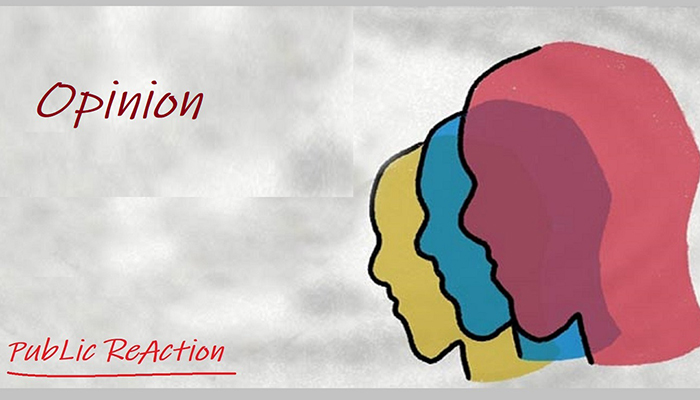


Bangladesh, which was notoriously dismissed as a “basket case” in 1971 by Henry Kissinger, national security adviser to U.S. President Richard Nixon, shortly after the nation was formed as a result of a violent war of independence with Pakistan, has more recently shed that moniker. A seminar titled ‘Cooperation between the European Union and Bangladesh and opportunities for Bangladesh’s economy’ took place in Brussels, Belgium. The seminar was hosted at Brussels Press Club on July 2, 2023.
The European Institute of Asian Studies and Study Circle London jointly arranged the seminar. The seminar’s speakers complimented Bangladesh’s outstanding achievements in overcoming multiple challenges and said that industrialized nations could take note of its success. They emphasized the significance of Bangladesh’s effective management, which has advanced Bangladesh’s economy while enhancing social, democratic, and developmental indicators. Bangladesh’s economic development continues to be unstoppable despite obstacles like the effects of COVID and the Ukraine crisis.
The seminar attendees noted that under present government, the country has seen extraordinary economic growth and made tremendous progress toward achieving the Millennium Development Goals over the previous ten years. Notably, Bangladesh has performed even better than its neighbor India in terms of achieving the MDG targets for the majority of social indices.
Speakers who attended the seminar included Milan Jover, a member of the Belgian Parliament, John Cornet Ilgius, the acting director for Asia and the Pacific at the Belgian Ministry of Foreign Affairs, Renji Tirink, the head of South Asia at European External Action, and Mahbub Hasan Saleh, the ambassador of Bangladesh to Belgium, Luxembourg, and the European Union.
The conference covered Bangladesh’s remarkable economic development, which saw it go from being the least developed to a middle-income country. For the past 50 years after achieving independence, the nation has benefited from a solid and positive partnership with the European Union. Bangladesh’s success in poverty reduction, education, women’s empowerment, and the establishment of an export-oriented economy, particularly in the readymade garment sector, can be attributed to the development model’s effective governance. The United Nations, the European Union, the United States, international organizations, and the international community have all recognized this development model.
Bangladesh has advanced significantly over the past 14 years, outpacing the EU’s 5.39% growth in 2021 with a 7% GDP growth rate. The country has taken on large-scale initiatives, including as the construction of the Padma Bridge, a nearly 4 billion USD project funded entirely with domestic funds. Bangladesh has established itself as a pioneer in development thanks to its visionary leadership and dedication to achieving economic growth by the year 2041. This accomplishment is impressive in light of the nation’s previous status as an international basket case.
Speakers discussed how certain vested interests in Bangladesh have started a misinformation campaign that serves the nation’s worst interests. To foreign missions in Bangladesh, as well as to foreign governments and parliamentarians in North America and Europe, these NGOs routinely disseminate untrue allegations about the administration. But the speakers made a significant point about how the government and the Election Commission have publicly declared their openness to accept foreign observers to watch the elections. This will ensure that the 2019 parliamentary elections are fair and transparent. In fact, the EU Delegation in Bangladesh has already been invited to send observers for the elections.
Belgian writer Andy Vermaut praised the people of Bangladesh for their tenacity, fortitude, and limitless potential during his speech at the conference. He recognized the remarkable change the nation has seen in the last 50 years, moving from a least developed to a middle-income country. Vermaut urged all political parties to support a free, fair, and inclusive electoral process that is overseen by the Independent Election Commission for the next parliamentary elections. He urged opposition parties to actively engage with the people and uphold the democratic principles that are fundamental to Bangladesh’s progress.
The Bangladeshi government’s generosity in offering the Rohingya refugees temporary shelter has also been acknowledged by the EU. The seminar acknowledged that by providing temporary shelter to around 1.2 million Rohingya refugees who have been forcibly displaced from Myanmar since August 2017, Bangladesh has demonstrated its commitment to humanitarian operations. While getting assistance from the international world, this sizeable migration has put Bangladesh under a lot of stress. The empowerment of women and the promotion of education have received particular attention from the European Union as it has constantly supported Bangladesh’s socioeconomic development.
The publishing editor of EU Today and renowned writer Gary Cartwright gave an insightful address on Bangladesh’s tremendous development accomplishments and the challenges it still faces. Cartwright emphasized Bangladesh’s notable achievements, which were earlier labeled as the least developed country but are now acknowledged as middle-income nations with a flourishing connection with the EU. He did, though, recognise the difficulties the nation has, including the denial of history, political violence, and intolerance supported by rival political parties. Despite these difficulties, Bangladesh has made significant socioeconomic progress, including reductions in poverty, improvements in education, and the empowerment of women.
The European Union, the United States, and other friendly nations were reassured by Andy Vermaut of their support for Bangladesh’s peaceful election process and its pursuit of sustainable development. He highlighted that Bangladesh’s future should be decided by its independent people, with international help supporting their choices. Vermaut praised Bangladesh’s tenacity and drive in pursuing socioeconomic growth while acknowledging the difficulties the nation faces, such as political upheaval, religious fundamentalism, and extremism.
To create a better future, he urged cooperation, communication, and giving the demands of the people top priority. Vermaut underlined the value of supporting democratic ideals, preserving human rights, and honoring human dignity. He also emphasized the importance of solidarity with Bangladesh. He expressed optimism that despite geopolitical and domestic difficulties, Bangladesh will continue to thrive, promote democracy, and keep peace with strong leadership and the alliance between Bangladesh, the European Union, and the United States.
Author: Mashrur Siddique Bhuiyan, Independent researcher and Freelance Columnist.